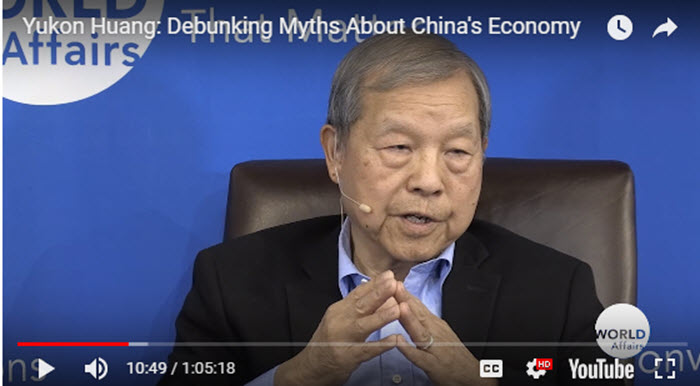My friend Geoffrey at Gateway to South America recently published this great interview with Yukon Huang about his book Cracking the China Conundrum: Why Conventional Economic Wisdom Is Wrong.
Yukon Huang is a senior fellow with the Asia Program. He was formerly the World Bank’s country director for China and earlier director for Russia and the Former Soviet Union Republics. He is an adviser to the World Bank, Asian Development Bank, Asian Infrastructure Investment Bank, and various governments and corporations. His research focuses on China’s economy and its regional and global impact.
Huang has published widely on development issues in both professional journals and the public media. He is a featured commentator for the Financial Times on China, and his articles are seen frequently in the Wall Street Journal, Bloomberg, Foreign Affairs, the National Interest, and Caixin. His books include East Asia Visions, Reshaping Economic Geography in East Asia, and International Migration and Development in East Asia and the Pacific. His latest book, Cracking the China Conundrum: Why Conventional Economic Wisdom Is Wrong, was published by Oxford University Press (2017).
He has a PhD in economics from Princeton University and a BA from Yale University.
Establishing the true facts of the Chinese economy is Yukon Huang’s primary concern in Cracking The Chinese Conundrum: Why Conventional Economic Wisdom Is Wrong, and authoritative, closely argued, and hugely insightful survey. Huang is highly credentialed: he is a Senior Fellow in the Asia Program at Carnegie Endowment for International, and his former posts took him from the World Bank to the US Treasury to an economics professorship. (Not that this proves anything. Economics has an odd way of turning people with considerable educational garlands into partisan hacks. Yet clearly, Huang has earned the trust of people who need expertise rather than talking heads). Seeking to correct the many myths and fallacies encrusted around the Chinese economy is honourable if large endeavour – so how does Huang do it?
